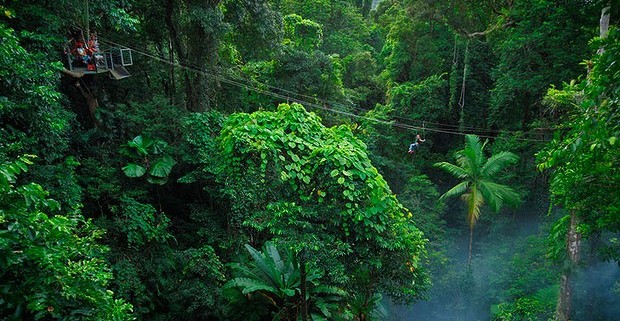Good environmental management is beyond politics

In Queensland tourism is a $10 billion industry providing 236,000 jobs and generating more than $60 million in expenditure per day. This is largely dependent on our intact green infrastructure – national and marine parks, world heritage areas, functioning ecosystems and free-flowing rivers.
As much as we rely on roads, rail and energy infrastructure for our society to function, we need to be mindful of nature’s infrastructure and the ecosystem services it provides. Protected catchments provide us with clean water, forests provide oxygen and stabilise soils, and healthy ecosystems provide us with an innumerable number of invaluable life-supporting essentials.
In far north Queensland we are blessed with natural infrastructure supporting our lifestyle and regional industries. From the Coral Sea to the Gulf of Carpentaria and the Torres Strait – healthy land and sea is economically, socially, culturally and environmentally fundamental to our region’s prosperity.
Regardless of political colours, beyond the ideology, most of us recognise the value of these icons to our tourism industry – not to mention their ecosystem services – and would oppose such recklessness.
Federal and state support of our national parks, the backbone of our tourism industry, appears at an all-time low. With only 4.8 per cent of Queensland in national parks and 70 per cent of Queenslanders visiting them, it makes no sense to wind back their protection and management. On the contrary, an increase in number and investment in better management would be an investment in the future.
Proposed new regional plans are failing to deliver land use certainty, and on Cape York they are prioritising development over biodiversity in more than half of the region.
As identified in the Queensland Plan, Queenslanders value a healthy environment. This reality is not split down ideological lines. It does not matter if you live on the land, run cattle over thousands of hectares or ride your bike to work every day in any given CBD. The truth is that caring for the environment crosses the political spectrum. We just have different approaches to what are common interests.
Buying into an ideological battle over our environment will only serve to squander our inherited natural assets in an increasingly polarised Us v Them scenario and make working together for a better future for our children all the more challenging.
Andrew Picone is President of the Cairns and Far North Environment Centre and Northern Australia Program Officer for the Australian Conservation Foundation and lives in Cairns.


Leave a Reply
Want to join the discussion?Feel free to contribute!